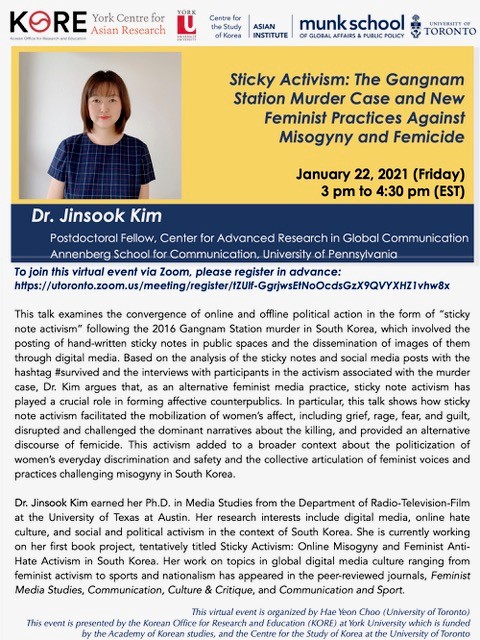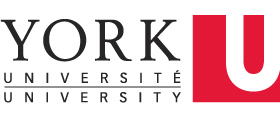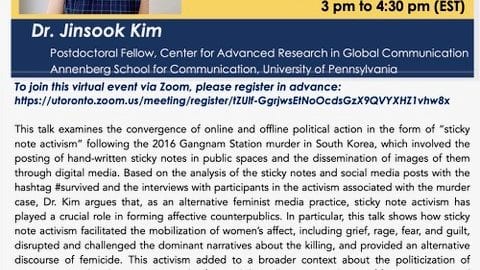Sticky Activism: The Gangnam Station Murder Case and New Feminist Practices Against Misogyny and Femicide
January 22, 2021

Friday, January 22, 2021 | 3:00 - 4:30 pm (EST)
This talk examines the convergence of online and offline political action in the form of “sticky note activism” following the 2016 Gangnam Station murder in South Korea, which involved the posting of hand-written sticky notes in public spaces and the dissemination of images of them through digital media. Based on the analysis of the sticky notes and social media posts with the hashtag #survived and the interviews with participants in the activism associated with the murder case, Dr. Kim argues that, as an alternative feminist media practice, sticky note activism has played a crucial role in forming affective counterpublics. In particular, this talk shows how sticky note activism facilitated the mobilization of women’s affect, including grief, rage, fear, and guilt, disrupted and challenged the dominant narratives about the killing, and provided an alternative discourse of femicide. This activism added to a broader context about the politicization of women’s everyday discrimination and safety and the collective articulation of feminist voices and practices challenging misogyny in South Korea.
Dr. Jinsook Kim earned her Ph.D. in Media Studies from the Department of Radio-Television-Film at the University of Texas at Austin. Her research interests include digital media, online hate culture, and social and political activism in the context of South Korea. She is currently working on her first book project, tentatively titled Sticky Activism: Online Misogyny and Feminist Anti-Hate Activism in South Korea. Her work on topics in global digital media culture ranging from feminist activism to sports and nationalism has appeared in the peer-reviewed journals, Feminist Media Studies, Communication, Culture & Critique, and Communication and Sport. https://www.asc.upenn.edu/people/faculty/jinsook-kim-phd
This event is organized by Hae Yeon Choo (University of Toronto) and is presented by the Korean Office for Research and Education (KORE) at York University which is funded by the Academy of Korean studies, and the Centre for the Study of Korea at the University of Toronto.
View the PDF version of the event poster
For more information: kore@yorku.ca





